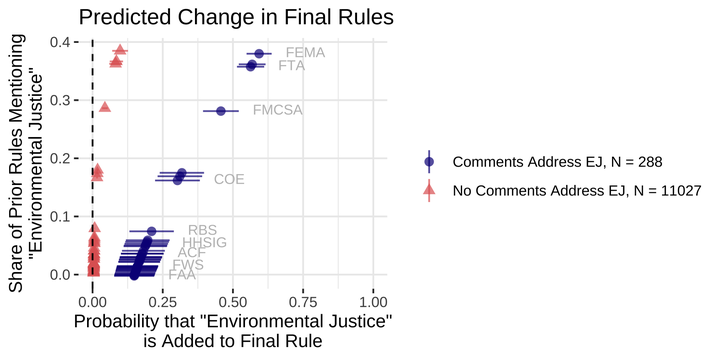Political movements shape policy agendas, often reframing policy debates in distributive justice terms. To examine how this affects policymaking, I assess the aggregate impact of environmental justice advocacy on U.S. federal policy from 1993 to 2020 using a new dataset of 13,179 draft and final rule pairs from 40 agencies and 42 million public comments on these rules. I find that when groups raise distributive justice concerns, final rules more often change to address these concerns. Supporting theories about how institutions affect receptivity to issue frames, agencies with processes for addressing environmental justice are more responsive. The scale of mobilization also matters; when larger coalitions raise environmental justice concerns, policy texts are more likely to change. However, within the movement, elite organizations have more lobbying success. These findings suggest that policymaking is systematically affected by which groups make distributive justice claims, their alignment with institutional biases, and the levels of public pressure they mobilize.
Making Policy About Distributive Justice
The Environmental Justice Movement’s Impact on Agency Rulemaking
